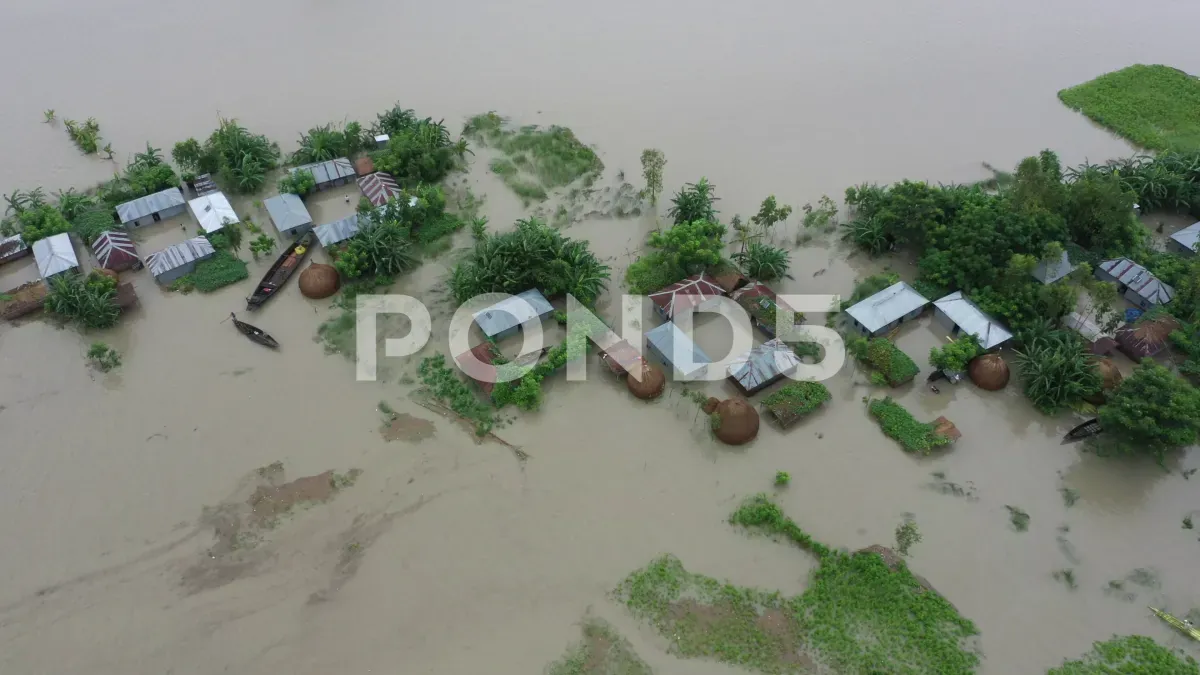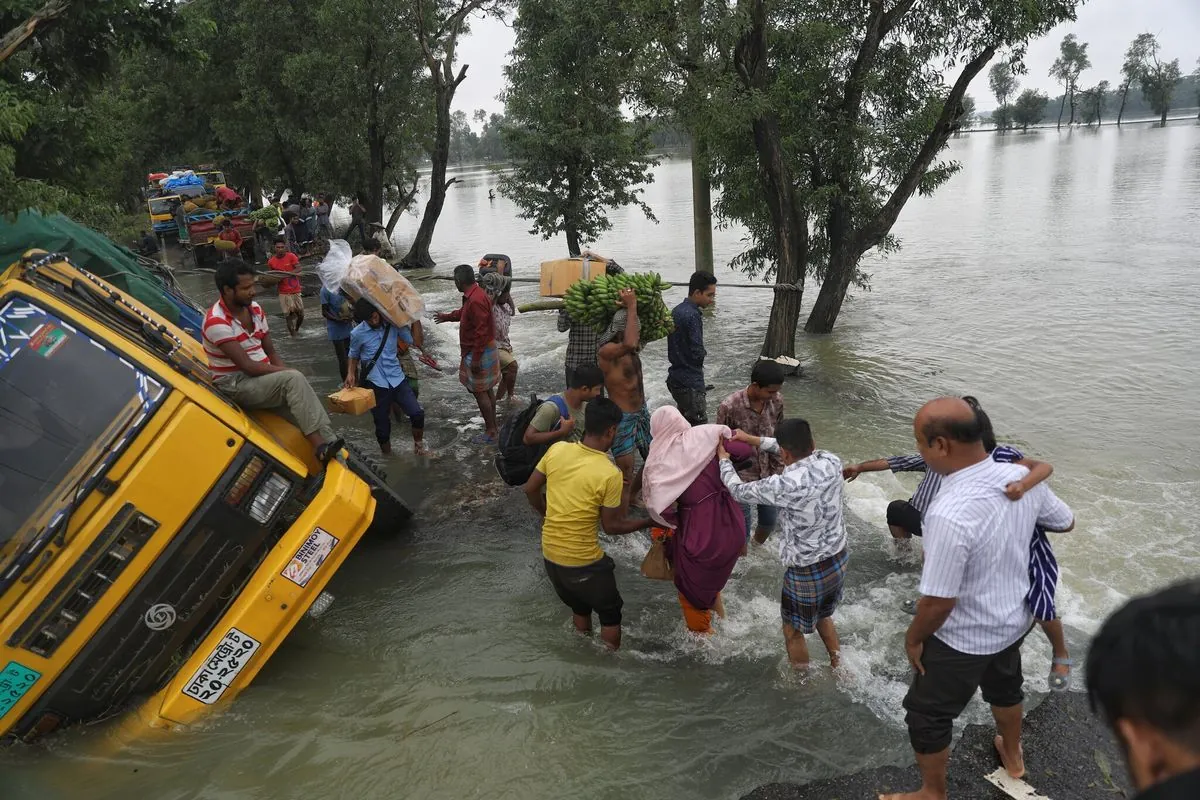Massive Floods Strand Millions in Bangladesh, Raising Climate Concerns
Severe monsoon flooding in Bangladesh has stranded nearly 3 million people and killed two. The disaster highlights the country's vulnerability to climate change and sparks controversy with neighboring India.

Severe monsoon rains have unleashed devastating floods across Bangladesh, leaving nearly 3 million people stranded and claiming two lives. The disaster has submerged vast areas, causing extensive damage to homes and infrastructure, according to officials from the country's disaster management ministry.
Bangladesh, one of the world's most densely populated countries, is particularly vulnerable to flooding due to its location in the Ganges-Brahmaputra Delta. The country experiences monsoon seasons typically from June to October, with climate change expected to increase the frequency and intensity of such events.
The Flood Forecasting and Warning Centre (FFWC) has cautioned that water levels may continue to rise over the next 24 hours, potentially exacerbating the already dire situation. The most affected districts include Feni, Moulvibazar, Habiganj, Comilla, and Chittagong, where five major rivers have surpassed danger levels.

A resident of Feni district, Mohammad Masum, shared his experience: > "I haven't seen so much water in the last 20 years. Everything in my house is wrecked because the water has risen to waist level."
The flooding has severely impacted road connectivity in several regions, isolating communities and hindering relief efforts. Bangladesh, with over 700 rivers, including 57 international rivers shared with India and Myanmar, has developed extensive flood warning systems and evacuation procedures since establishing the FFWC in 1972.
A 2015 World Bank Institute analysis estimated that 3.5 million people in Bangladesh were at risk of annual river flooding. This vulnerability is exacerbated by factors such as deforestation in the Himalayas and the loss of approximately 1% of the country's arable land each year due to climate change and river erosion.
In response to the crisis, students in Dhaka held protest rallies, alleging that the floods were caused by the opening of dam sluice gates in neighboring India. However, India's foreign ministry refuted these claims, stating that the flooding was primarily due to heavy rains in the catchment areas of the Gumti River, which flows through both countries.
The disaster has also impacted India's Tripura state, which shares an 856 km border with Bangladesh. Suman Deb, an Indian disaster management official, reported that 12 people have died due to landslides and floods in Tripura over the past three days.
[[India's Interior Minister Amit Shah stated:]]
"The federal government has rushed disaster management teams, apart from boats and helicopters, to Tripura to assist the state government in relief and rescue operations."
As Bangladesh and India grapple with the aftermath of these floods, the need for close cooperation in managing shared rivers and addressing climate change impacts becomes increasingly apparent. The World Bank continues to support Bangladesh's efforts in climate change adaptation and disaster risk management, including the development of innovative floating agriculture techniques to adapt to flooding.
This catastrophic event serves as a stark reminder of the urgent need for global action on climate change and the importance of international cooperation in mitigating its impacts on vulnerable populations.


































